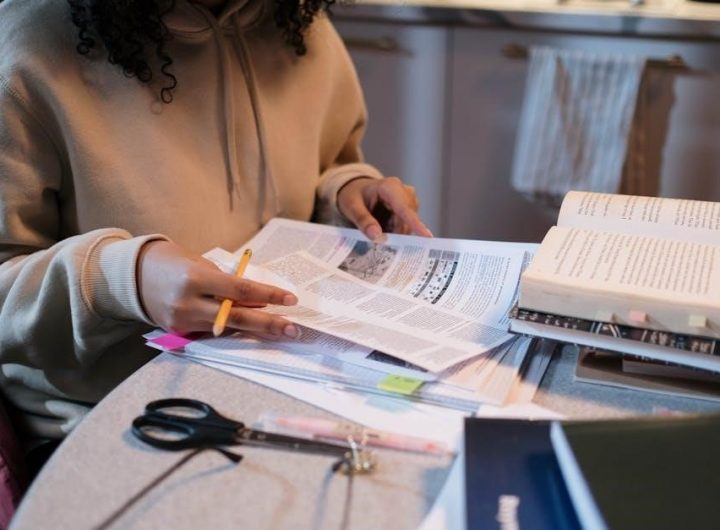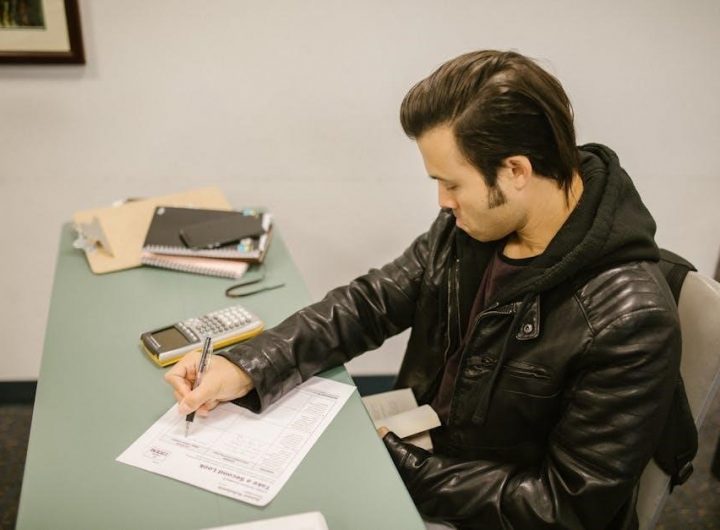Herbert L. Clarke⁚ A Legacy in Trumpet Pedagogy
Herbert L. Clarke, a renowned cornet soloist and pedagogue, left an enduring mark on trumpet pedagogy. His technical studies, available as PDFs online, remain widely used by trumpet players of all levels. His influence is undeniable.
Clarke’s Life and Career
Herbert Lincoln Clarke (1867-1945), a prominent figure in late 19th and early 20th-century music, was a virtuoso cornet soloist and influential bandleader. Born in Massachusetts, his musical journey began with the violin under his father’s guidance. He transitioned to the cornet in his teens, quickly establishing himself as a leading soloist with renowned bands like those led by Patrick Gilmore and John Philip Sousa. His career culminated in a two-decade tenure conducting the Long Beach Municipal Band, solidifying his reputation as a masterful musician and conductor. This multifaceted career provided a rich foundation for his pedagogical contributions, particularly his celebrated technical studies for the cornet and trumpet, which continue to shape the training of brass players today. His life and career showcase dedication and achievement in the world of brass instruments.
The Influence of Clarke’s Technical Studies
Herbert L. Clarke’s technical studies for cornet and trumpet have had a profound and lasting impact on brass pedagogy. These exercises, readily available as PDFs online, are renowned for their comprehensive approach to developing essential skills. They systematically address range extension, breath control, flexibility, and articulation. The structured progression within the studies allows for a gradual increase in difficulty, ensuring that players develop a solid technical foundation. Many contemporary trumpet players and instructors still utilize Clarke’s studies as a cornerstone of their practice routines, testament to their enduring value and effectiveness. Their influence is evident in the continued popularity and widespread use of these exercises, even in modern trumpet pedagogy.
Clarke’s Technical Studies for the Cornet/Trumpet: A Detailed Look
This section delves into the structure, content, and pedagogical approach of Herbert L. Clarke’s renowned technical studies, readily available as PDFs online.
Structure and Content of the Studies
Herbert L. Clarke’s Technical Studies for the Cornet/Trumpet are organized into progressive exercises designed to develop various technical skills. The studies are not simply scales and arpeggios; they incorporate a wide variety of musical patterns and rhythmic complexities. Many editions exist, often differing slightly in layout or page numbering. The exercises systematically address range extension, articulation precision, flexibility, and endurance. The early studies focus on foundational techniques, gradually increasing in difficulty to challenge advanced players. The content progresses logically, building upon previously learned concepts. Many readily available PDF versions circulate online, offering convenient access to these valuable exercises. Careful attention to dynamics and phrasing is emphasized throughout, underscoring the importance of musicality in technical practice. The comprehensive nature of the studies makes them a cornerstone of trumpet pedagogy.
Pedagogical Approach and Exercises
Clarke’s pedagogical approach emphasizes a gradual and systematic development of technical skills. The exercises are carefully sequenced, building upon previously learned concepts to ensure a solid foundation. His method prioritizes accuracy and control over speed, encouraging mindful practice. The studies incorporate a variety of intervals and rhythmic patterns, promoting agility and musical expression. Many exercises feature scales, arpeggios, and melodic passages designed to improve range, flexibility, and intonation. Clarke’s attention to detail is evident in the meticulous construction of each exercise, fostering efficient and effective practice habits. The use of dynamics and articulation markings further enhances the musicality of the studies, encouraging players to develop a nuanced and expressive sound. The exercises’ adaptability allows for customization based on individual needs and skill levels. This careful structure makes Clarke’s studies a valuable resource for both students and experienced trumpeters.
Benefits and Challenges of Using Clarke’s Studies
Utilizing Clarke’s technical studies offers numerous benefits. They provide a comprehensive approach to developing essential technical skills, systematically improving range, endurance, and tone production. The structured exercises promote efficient practice, leading to noticeable progress. The studies’ accessibility through readily available PDFs makes them convenient for self-study. However, challenges exist. The potentially monotonous nature of repetitive exercises may lead to boredom or a lack of motivation if not approached thoughtfully. Without a qualified instructor, players might develop bad habits or misunderstandings of proper technique. The difficulty level can be daunting for beginners, requiring patience and perseverance. Furthermore, overuse without sufficient rest can cause injury. Therefore, a balanced approach is crucial, integrating the studies into a broader practice regimen that includes musical repertoire and other exercises to maintain interest and prevent overuse injuries.
Beyond Clarke⁚ Modern Interpretations and Adaptations
Modern adaptations of Clarke’s studies include play-along tracks and alternative exercises. These offer varied approaches while building upon his foundational method.
Play-Along Tracks and Modern Arrangements
Many contemporary resources offer innovative approaches to practicing Herbert L. Clarke’s technical studies. Instead of relying solely on a metronome, which can be monotonous, musicians are now incorporating play-along tracks. These tracks provide rhythmic and harmonic context, enhancing engagement and making practice sessions more enjoyable. Some arrangements feature funky or upbeat backing music, transforming traditional exercises into stimulating musical experiences. This approach can be particularly beneficial for students who find traditional methods tedious, helping maintain focus and motivation. The availability of these play-along versions reflects a broader trend in music education towards interactive and engaging learning materials. This approach not only makes the practice more fun but also helps develop musicality and timing in a more holistic way than simply playing along with a metronome.
Alternative Exercises Building Upon Clarke’s Method
While Clarke’s studies remain invaluable, modern trumpet pedagogy has expanded upon his foundational work. Many contemporary exercises build upon Clarke’s approach, offering variations and extensions. Some focus on specific technical challenges, such as advanced lip flexibility or extended range, addressing areas not explicitly covered in Clarke’s original collection. These exercises often incorporate elements of contemporary musical styles, incorporating rhythmic complexities and melodic variations not found in the more traditional Clarke studies. Others maintain the core principles of Clarke’s method—focused, controlled articulation and gradual technical progression—but with a broader musical context. These supplementary materials provide a valuable complement to Clarke’s studies, offering a more comprehensive and modern approach to trumpet technique development. They cater to the evolving needs of contemporary trumpet players. Such exercises ensure well-rounded skill development.
Finding and Utilizing Clarke Studies PDFs
Numerous websites offer Clarke Technical Studies PDFs. However, be cautious of copyright; ensure legal access before downloading and using these valuable resources.
Online Resources and Legitimate Downloads
Finding legitimate online resources for Herbert L. Clarke’s Technical Studies PDFs requires careful navigation. While many websites offer downloads, ensuring legality is paramount. Reputable music publishers, such as Carl Fischer Music, which originally published Clarke’s work, may offer digital versions for purchase. Searching for “Herbert L. Clarke Technical Studies PDF legal download” will yield more reliable results. Always verify the source’s authenticity and check for licensing information. Some educational institutions and online music libraries might provide access to digitized copies. Be wary of free downloads from unknown sources, as these could violate copyright. Respecting intellectual property rights ensures the continued availability of such valuable musical resources. Prioritize official channels for accessing Clarke’s studies to support creators and maintain ethical practices within the music community. Remember to always check for terms of use before downloading.
Potential Copyright Issues and Ethical Considerations
Downloading Herbert L. Clarke’s Technical Studies PDFs from unofficial sources raises significant copyright concerns. These studies, even if decades old, remain protected intellectual property. Unauthorized distribution or reproduction infringes on copyright laws, potentially leading to legal repercussions for both distributors and users. Downloading from sites offering free, unverified PDFs could expose users to malware or corrupted files. Ethical considerations are equally important. Respecting the work of composers and publishers is crucial for supporting the creation and dissemination of music. Purchasing legal copies ensures fair compensation for the creators and helps maintain a sustainable environment for musical publishing. Consider the impact of your actions on the livelihood of musicians and the future of music education. Choosing ethical sources promotes a culture of respect for artistic creation and ensures the long-term availability of valuable musical resources like Clarke’s enduring studies.
Integrating Clarke Studies into a Comprehensive Trumpet Practice Routine
Incorporate Clarke studies strategically within a balanced practice routine. Use them for technical development, focusing on accuracy and gradual speed increases. Remember to prioritize mindful playing over speed.
Warm-up and Development Exercises
Begin your practice session with a focused warm-up routine, ideally including long tones and lip slurs. Select exercises from Clarke’s studies that address specific technical challenges you face. For instance, if you struggle with high notes, start with exercises targeting that range. Pay close attention to breath support and embouchure technique throughout. Remember to gradually increase the tempo as your control improves, always prioritizing accuracy over speed. Don’t rush through exercises; instead, focus on precision and consistent tone production. Use a metronome to maintain rhythmic accuracy and to track your progress. As you gain proficiency, you can gradually increase the complexity and speed of the exercises, challenging yourself to refine your technique. The goal is to build a solid foundation of technical skills and endurance.
Etudes and Performance Preparation
Once you’ve mastered the foundational exercises, incorporate selected etudes from Clarke’s studies into your practice routine. These etudes offer opportunities to apply your developed technical skills in a more musical context. Focus on phrasing, articulation, and musical expression while maintaining technical accuracy. Record yourself playing the etudes to identify areas needing further refinement; this provides valuable self-assessment. As you progress, choose more challenging etudes to push your boundaries and expand your musical vocabulary. Remember to practice at performance tempo and dynamics to ensure a polished and confident presentation. Consider using backing tracks or play-alongs to simulate performance conditions. This helps build stamina and prepares you for the demands of performing the music publicly. Careful attention to detail and consistent practice will enable you to perform the etudes with confidence and expression.
 the house across the lake pdf
the house across the lake pdf  heard on the wall street pdf
heard on the wall street pdf  locating the epicenter of an earthquake worksheet pdf answer key
locating the epicenter of an earthquake worksheet pdf answer key  sie exam study guide pdf
sie exam study guide pdf  48 laws of power summary pdf
48 laws of power summary pdf  citi program quiz answers pdf
citi program quiz answers pdf  mitsubishi d700 instruction manual
mitsubishi d700 instruction manual  indesit washing machine manual iwdc6125
indesit washing machine manual iwdc6125